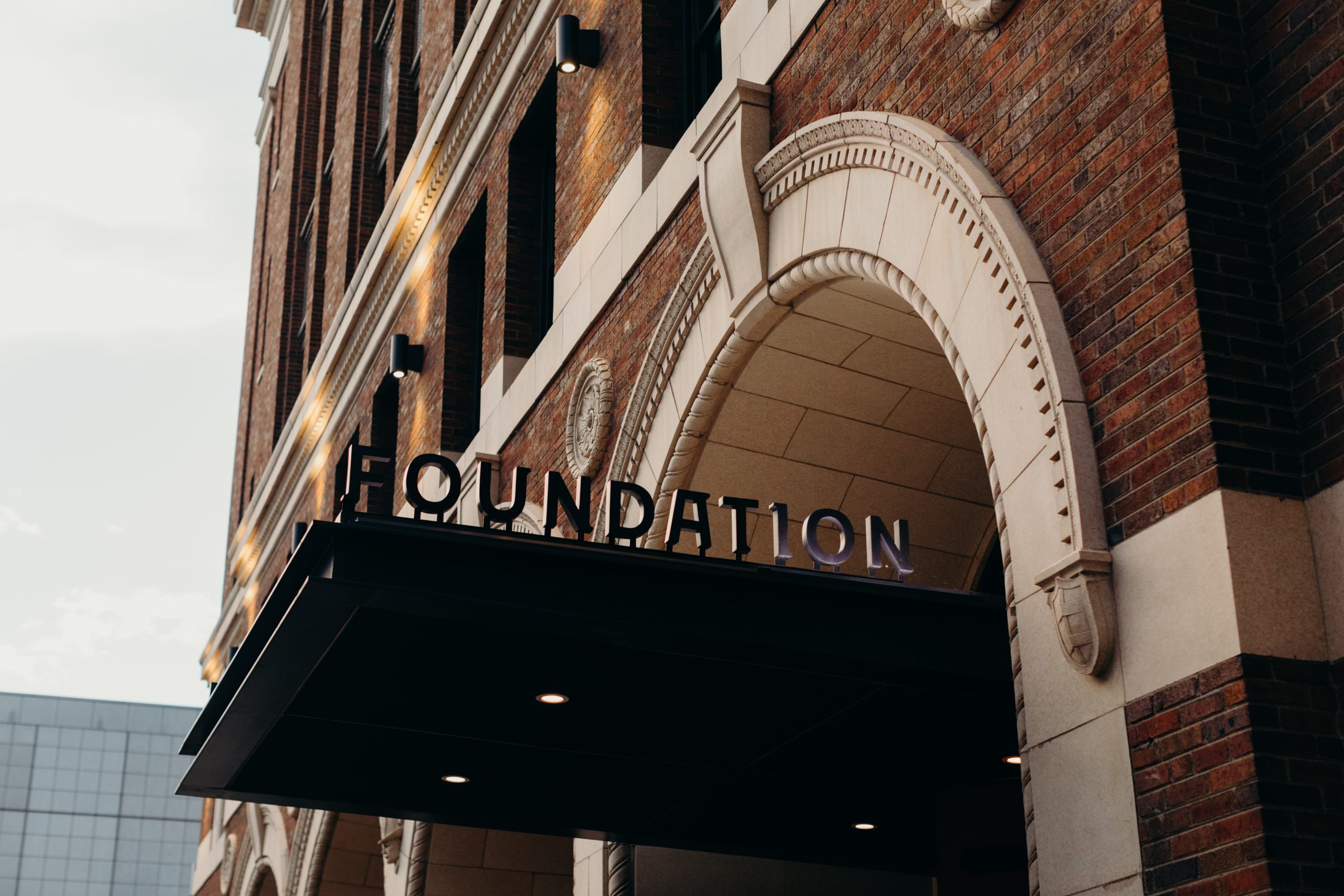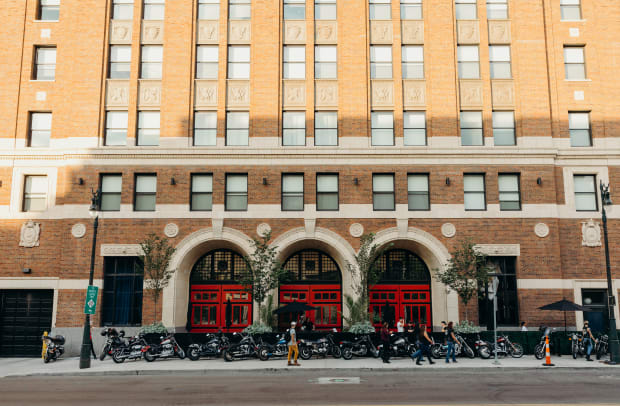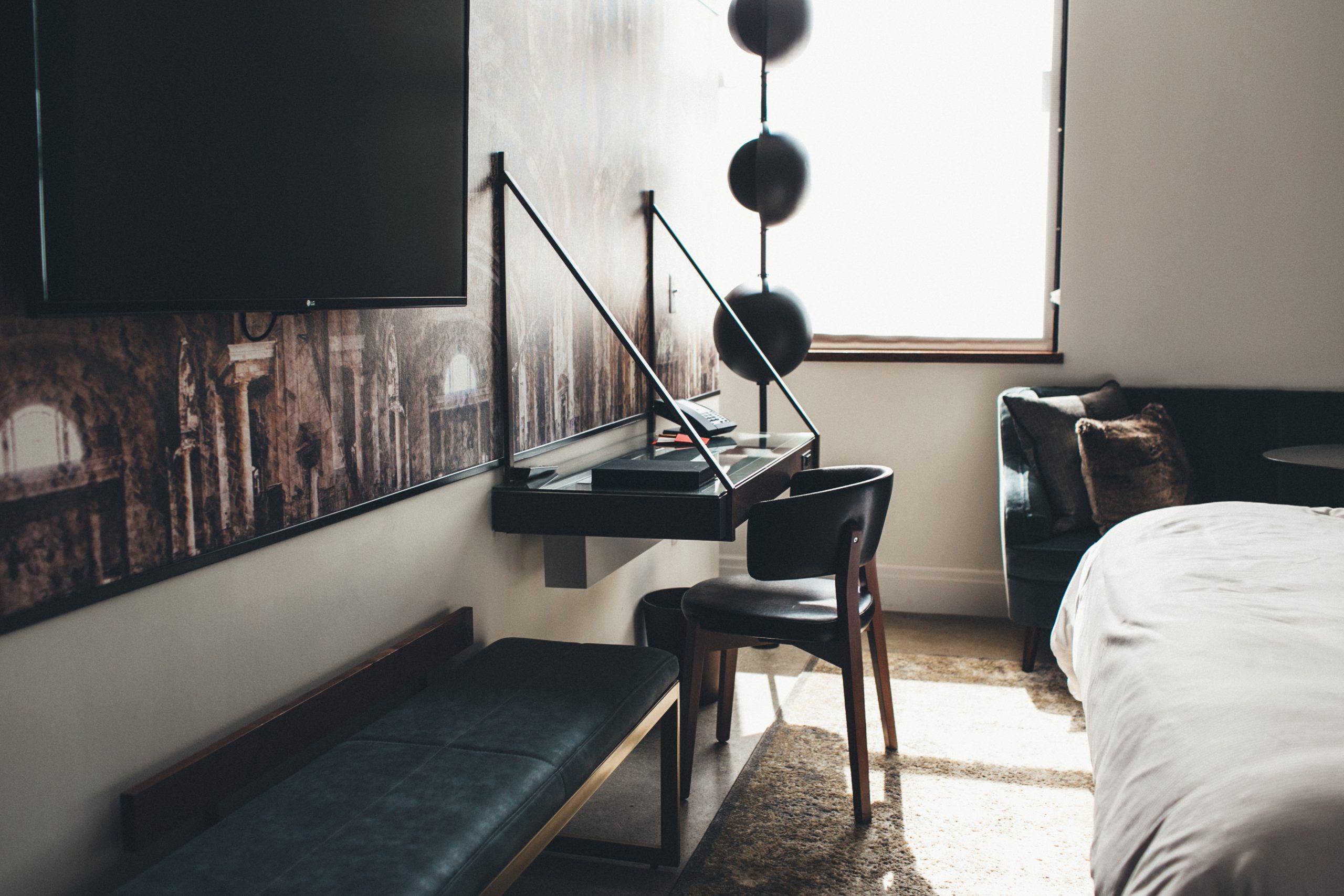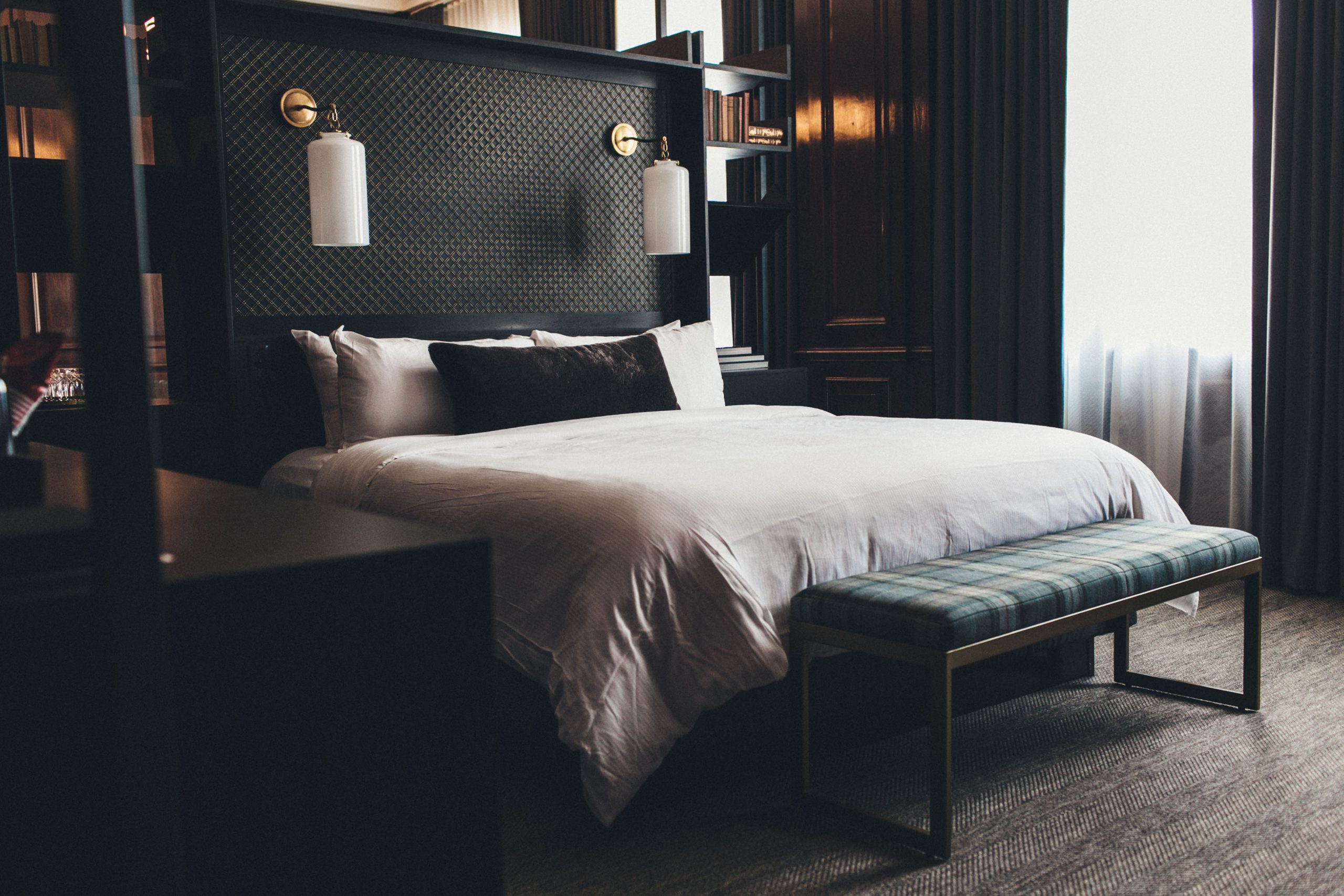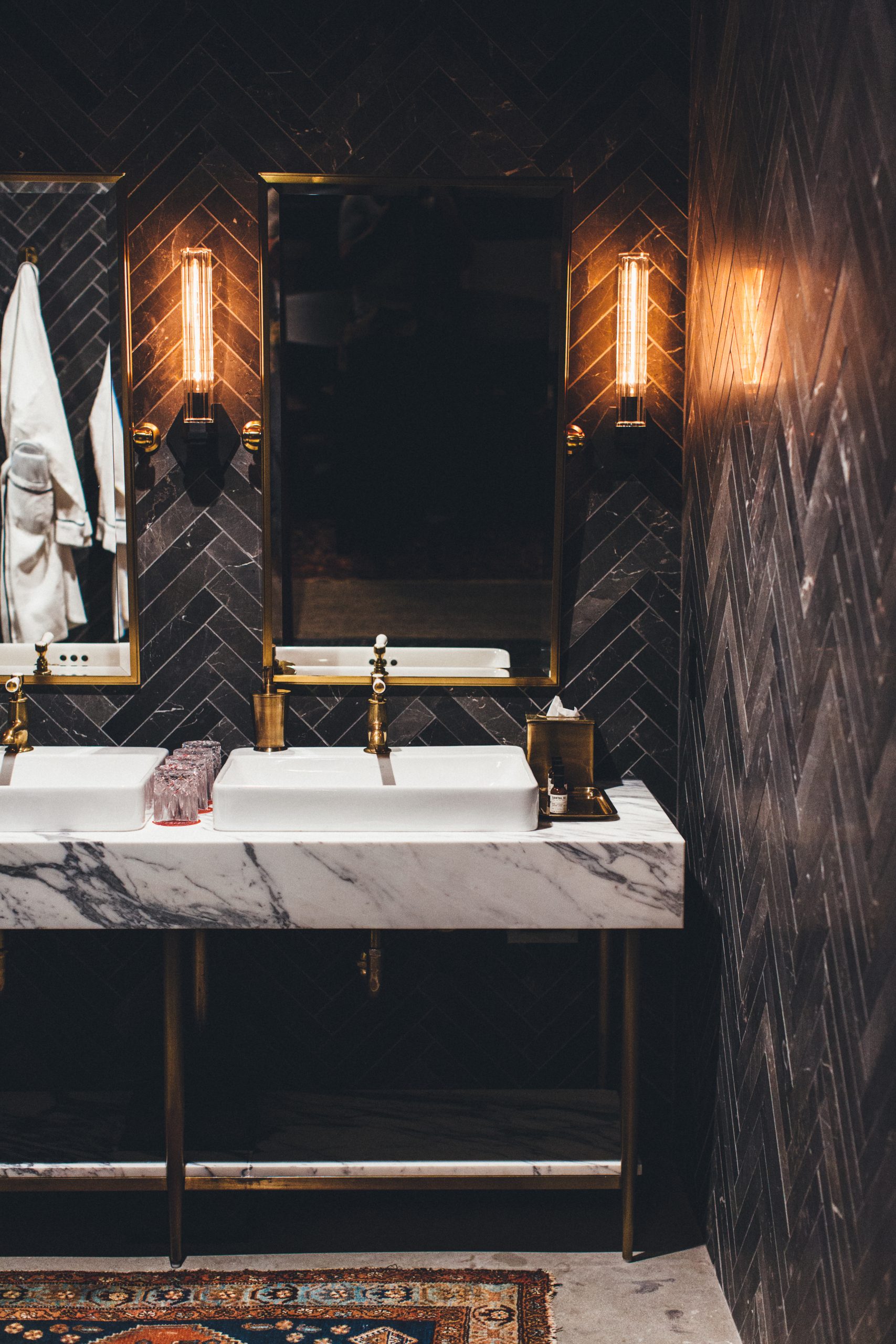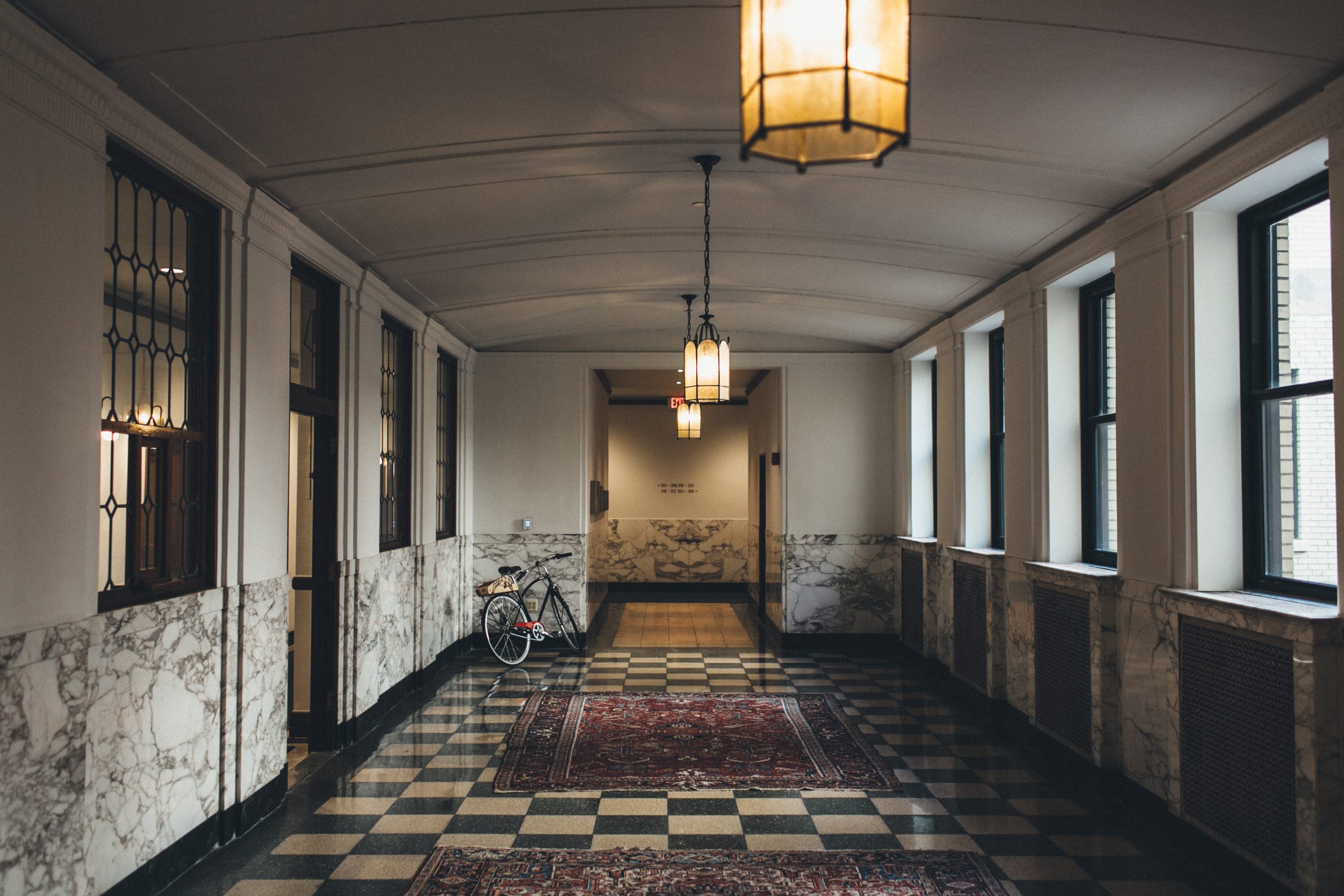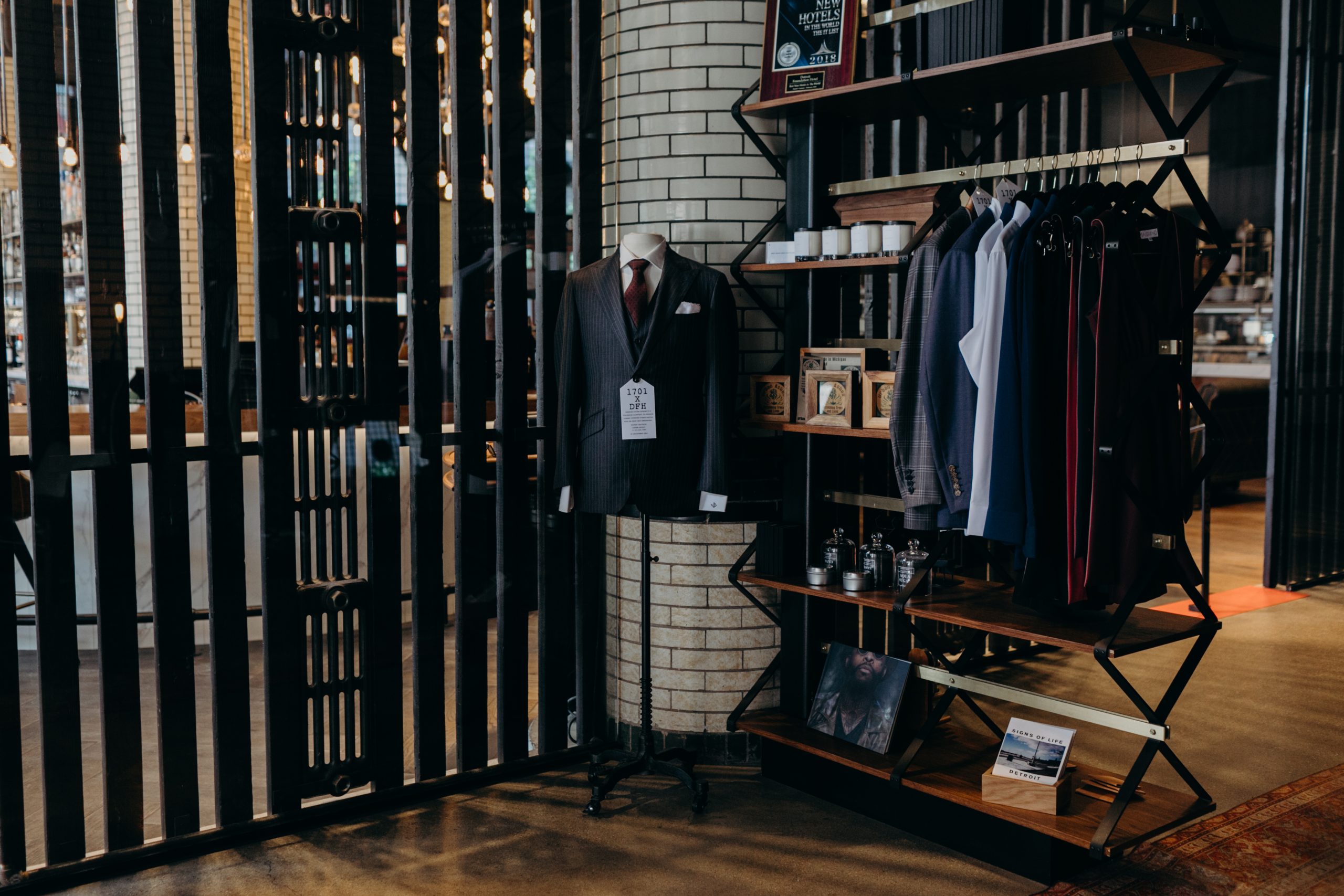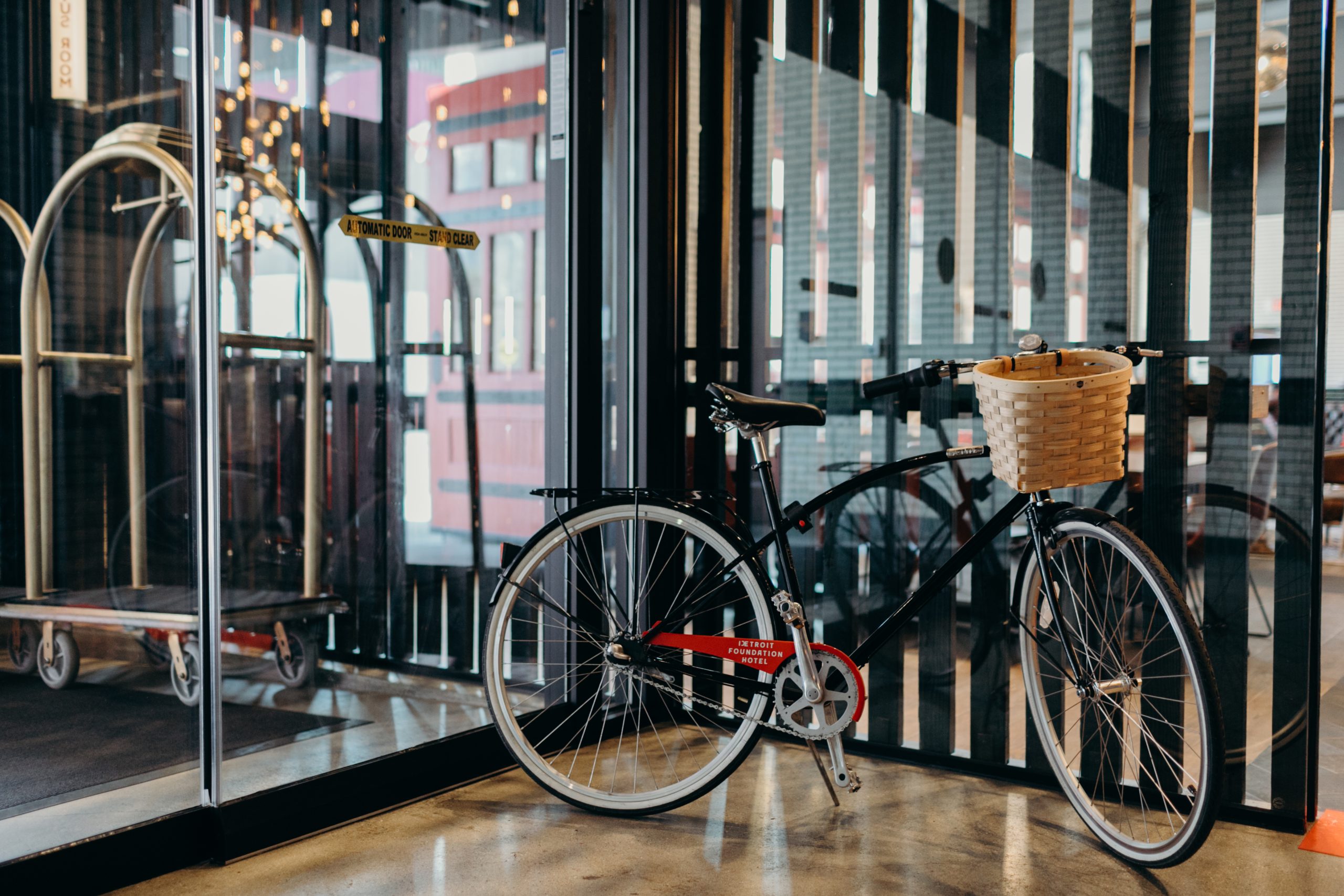Last week, Traditional Building magazine asked me to draft a case study on Blackberry Systems’ pivotal role in restoring the Detroit Foundation Hotel. The company provided an historic window site review, then replaced all windows and a number of doors on site, which once served as Detroit’s first firehouse designed for motorized fire equipment. It was designed by Hans Gehrke in the 1920s and completely restored as a hotel in 2017. A+A is pleased to post the case study here today.
The five-story building that now serves as the Detroit Foundation Hotel got its start as the city’s first firehouse designed for motorized – rather than horse-drawn – fire equipment. Located at 250 West Larned Street in downtown Detroit, across Huntington Place, it served also as the Fire Department headquarters building.
Completed in 1929, it was designed by noted Detroit architect Hans Gehrke who was commissioned to design a number of firehouses by the City of Detroit in the 1920s. A partner in the firm of Spier, Rohns & Gehrke, he was known for his neoclassical style.
Here, his design included accenting terra cotta appointments and massive, out-swinging bay doors with ornamental steel half-rounds above. The firehouse he designed could house more than 500 firefighters on its second through fifth floors until 2011. It would remain the Detroit Fire Department’s administrative headquarters until 2014.
The building was listed on the National Register of Historic Places in 2009, and was a Federal Historic Tax Credit project that required both local historic approval as well the National Park Service approval.
Before its renovation to the Detroit Foundation Hotel was initiated, Blackberry Systems of Kalamazoo, Michigan provided an historic window site review to assist in Federal Tax Credit Approval, as well as preliminary design and budget pricing.
Blackberry also historically replicated 48 wood double-hung windows on site, as well as 182 steel double-hung windows, and seven steel fixed windows, with Quaker H500 Series aluminum thermally broken single hung and fixed windows.
In addition, Blackberry restored three fixed steel windows, seven pairs of wooden outswing bay doors, seven half-round radius steel transoms, as well as two pairs of steel doors and transoms. The company also restored a number of exterior ornamental grills and grates.
The firm restored all of these steel windows, transoms, and decorative grills on site. The wooden bay doors were removed and restored in a shop environment.
The renovation was completed in 2017, with an estimated cost of more than $30 million. The hotel, managed by the Aparium Hotel Group, opened as the Detroit Foundation Hotel in May of that year.
This 100-room boutique hotel has flourished since it opened and boasts one of the city’s finest restaurants, the Apparatus Room, which occupies space that formerly housed the fire company’s first-floor truck bays. The original glazed tiles walls, red tile floors, as well five brass poles all remain, creating a one-of-a-kind atmosphere.
On Oct. 7, 2023, MLive magazine ran an online feature that announced the hotel had been named the third best hotel in the entire Midwest by Conde Nast Traveler magazine.
According to Michigan magazine, the national travel publication received more than a half million votes from readers for their favorites in a number of categories. In the list of its “Top 15 Hotels in The Midwest: Readers’ Choice Awards,” the Detroit Foundation Hotel ranked just behind the JW Marriott Indianapolis and the Pfister Hotel in Milwaukee.
“Stylish and busy, with a great mix of historic architecture and well-designed modern touches,” Conde Nast Traveler wrote about its ranking of the hotel. “This former firehouse has preserved a lot of its best elements, like the original, untouched terrazzo floors and wood-paneled walls. Most of these details are in the public spaces, but a few, including the terrazzo floors, extend to the guest rooms. Local art appears on every floor.”
The magazine noted that the menu from The Apparatus Room is always changing, but is known for its shareable feasts.. “Vegetables are divine, and sourced from Recovery Park Farms, a leader in the urban farm movement using vacant lots to truly farm in the city.”
For more, go here.

